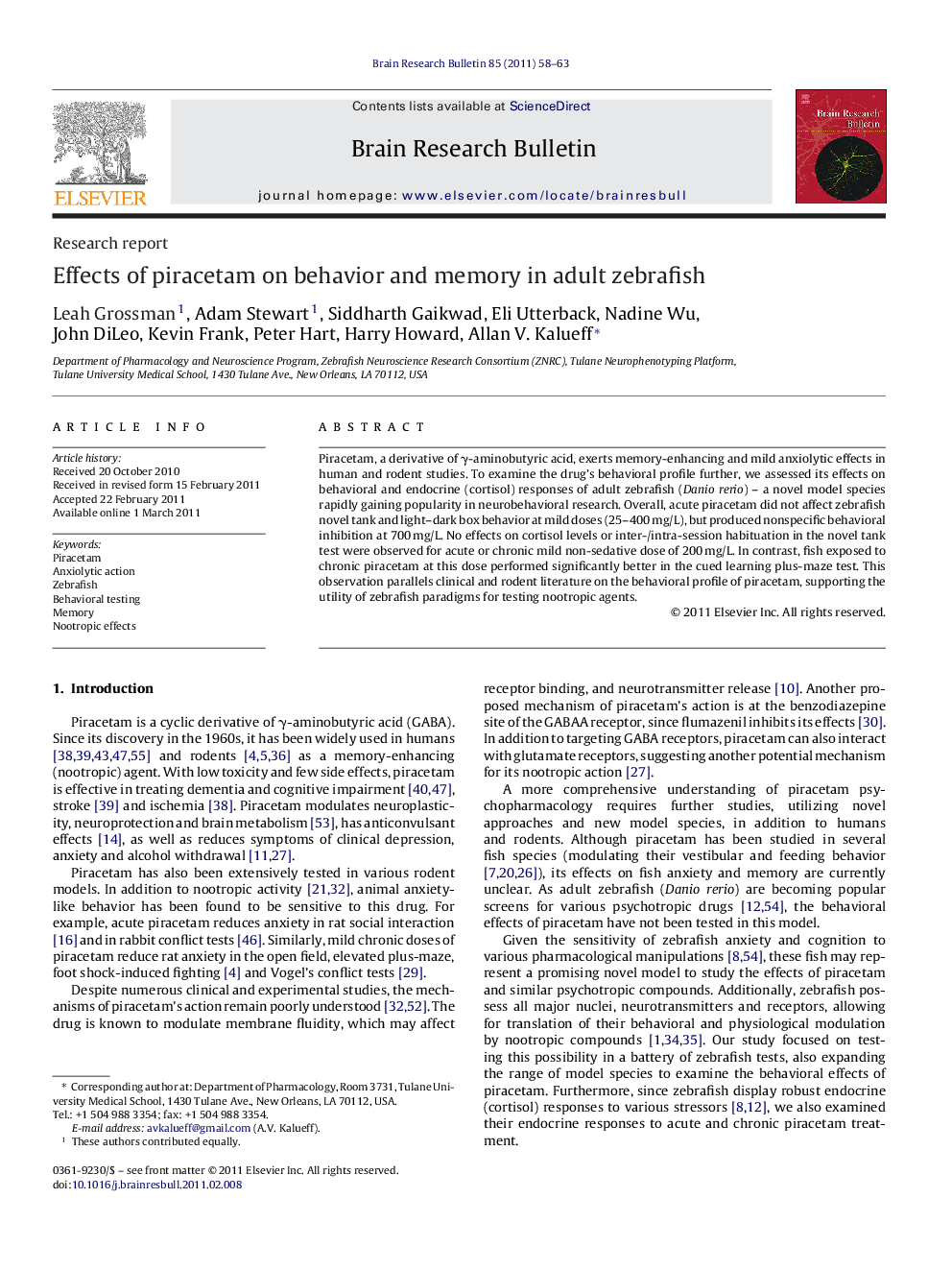| Article ID | Journal | Published Year | Pages | File Type |
|---|---|---|---|---|
| 4319045 | Brain Research Bulletin | 2011 | 6 Pages |
Piracetam, a derivative of γ-aminobutyric acid, exerts memory-enhancing and mild anxiolytic effects in human and rodent studies. To examine the drug's behavioral profile further, we assessed its effects on behavioral and endocrine (cortisol) responses of adult zebrafish (Danio rerio) – a novel model species rapidly gaining popularity in neurobehavioral research. Overall, acute piracetam did not affect zebrafish novel tank and light–dark box behavior at mild doses (25–400 mg/L), but produced nonspecific behavioral inhibition at 700 mg/L. No effects on cortisol levels or inter-/intra-session habituation in the novel tank test were observed for acute or chronic mild non-sedative dose of 200 mg/L. In contrast, fish exposed to chronic piracetam at this dose performed significantly better in the cued learning plus-maze test. This observation parallels clinical and rodent literature on the behavioral profile of piracetam, supporting the utility of zebrafish paradigms for testing nootropic agents.
► Piracetam affects zebrafish behavior and learning. ► Plus-maze as a model of learning and memory in zebrafish. ► Zebrafish is a promising model for cognitive research.
